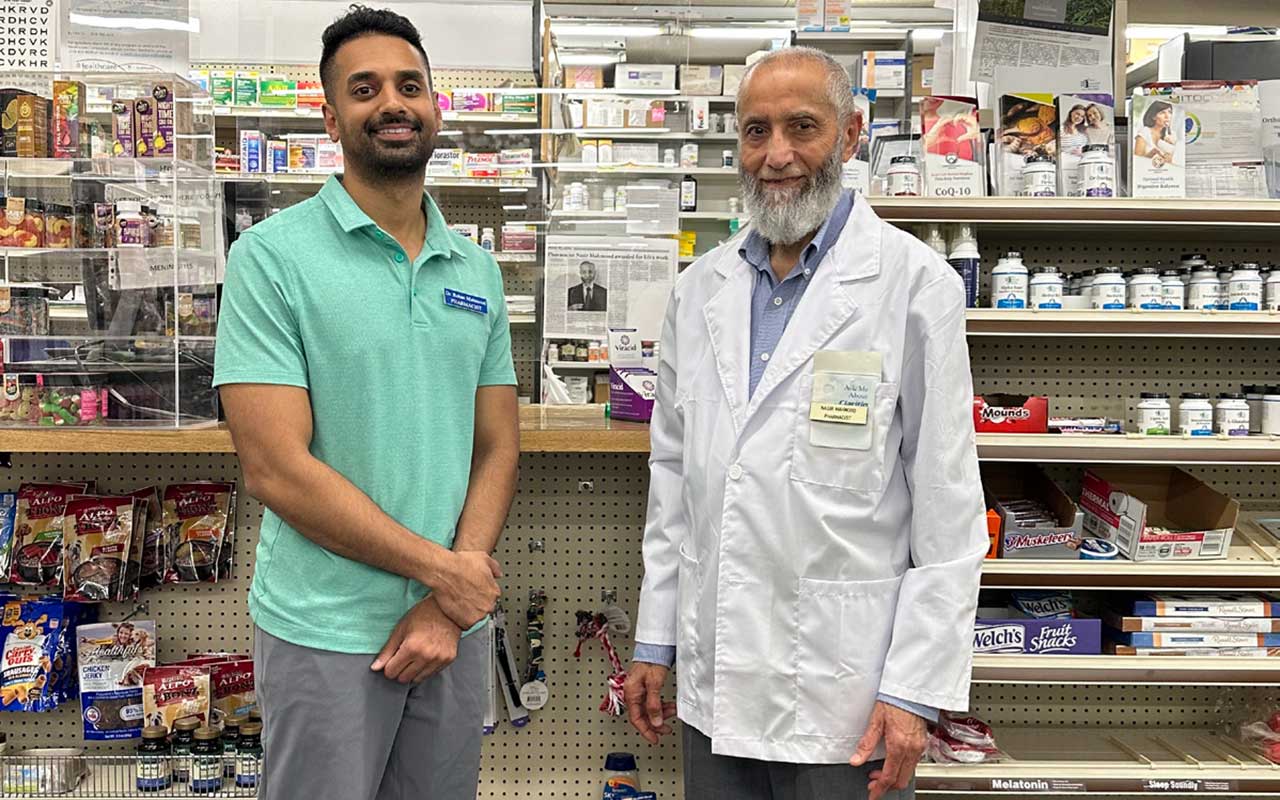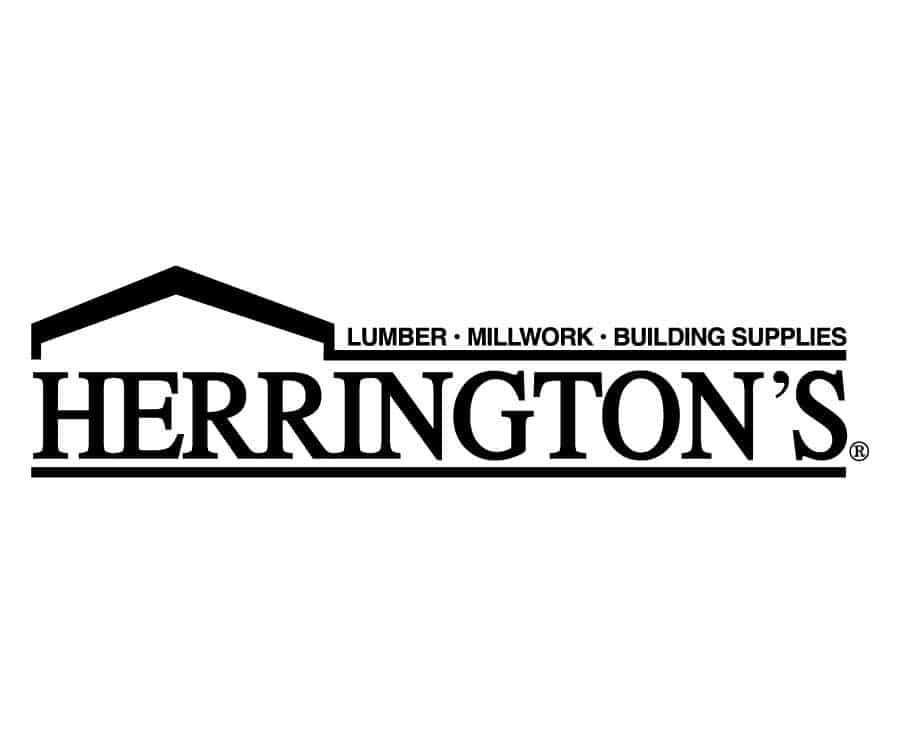Main Street Business

Pine Plain’s Distinguished Pharmacist Nasir Mahmood
Before Stissing House was a refined restaurant, before the Pine Plains Platter and the Stissing Center, Nasir Mahmood arrived in Pine Plains in 1989 to take over an existing pharmacy. He heard about the Pine Plains Pharmacy while working at Coney Island Hospital in Brooklyn, NY, and within two weeks had moved with his young family to go to a rural community where he was the only person of color. Mahmood described it as, “The best move of my life. Within two weeks it was as if I had always lived here.” Now Rehan, his 36-year-old son, has joined the business sharing his father’s view that a pharmacy is a service to its community.
How and where it all began
Raised and educated in Pakistan, Mahmood arrived in the United States in 1982 and enrolled in an MBA program at Long Island University in Brooklyn. While studying for the stringent three-part state pharmacist licensing exams, he also worked full-time for a Manhattan pharmacy, which sponsored him for a green card. “It was the two toughest years of my life,” he marveled, “I don’t know how I did it.” When Mahmood received his MBA, it was an uncommon choice for pharmacists. “LIU let me tailor my courses to pharmacy management. Accounting, finance, marketing, sales, computer science,” said Mahmood. “It’s why I succeeded. Now pharmacy schools are including business courses in their curricula.”
After running the Pine Plains Pharmacy for 17 years, Mahmood eventually bought out his three partners in 2006 and is now purchasing the drugstore’s historic building in the center of town.
 A responsibility to our patients
A responsibility to our patients
Many brand name big box stores have offered to buy the business from him, but he continues to refuse. “They offer to buy your business, but then they move the medical records and direct customers to another store, and the community is left with no local pharmacy and deprived of the wonderful, personal services it deserves. Today there are no independent pharmacies left in all of Columbia County. The last one to close was the Copake Pharmacy. In Dutchess County there are very few remaining independent pharmacies – only three that I can think of east of the Taconic Parkway. The big box stores have very high staff turnover, the pharmacists don’t know their customers and generally don’t, despite the law, counsel people about their prescriptions. What time to take them. What to avoid. What to expect. Here we know everybody and their families by name. It makes all the difference in the world.”
“A pharmacist is a professional like a lawyer or a doctor,” Mahmood believes. “We have a responsibility to our patients and offer important personalized services. We even deliver if it is necessary. It’s a cutthroat business, and you can’t survive if you don’t have empathy.”
Advocate
Mahmood is active in protecting and promoting independent pharmacies in New York State and nationally. He’s the past president of the Pharmacist’s Society of the State of New York and for 13 years championed legislation to allow pharmacists to provide immunization services. Once passed in 2008, this opened the door to eventually allowing pharmacists to do COVID testing and all inoculations.
In 2014, Mahmood was appointed to the New York State Board of Pharmacy by the Board of Regents where he is now serving as chairman. The Board of Pharmacy regulates the profession and influences consumer safety. Under his leadership, birth control pills will be available over the counter and anti-psychotic long-acting injections can be administered by pharmacists, thanks to a recent law passed by the legislators. At the national level, the National Community Pharmacists Association works to further the cause of independent pharmacists in the United States. Nasir sits on NCPA’s most important national legislative and political action committee. He has received many national, state, and local leadership awards and recognitions, including the highest in the pharmacy profession, the Bowl of Hygeia.
Facing challenges
Asked about the over prescribing of Oxycodone and other narcotics, Mahmood observed that the problem was ignored from the beginning as big pharma and manufacturers promoted the drug to its max. “Regulators should have been doing their due diligence. So many unnecessary deaths and overdoses due to over prescribing are uncalled for.”
New York has instituted the I-STOP database, which records all controlled substances by patient name and prevents pharmacy shopping as prescribers and pharmacists check the interstate database before prescribing and dispensing.
The continuing challenge for independently owned pharmacies is consolidation of pharmaceutical and insurance companies, medical providers, mail order, and pharmacy benefit managers, which control 80% of all prescriptions creating a monopoly and damaging small businesses and patients’ health. Many drugs prescribed by physicians are unavailable at the big box stores, which offer substitutes, while independent drug stores like Mahmood’s continue to have access to maintenance drugs like Adderall and Quinapril. “We keep an eye on what’s going on and strategize about our inventory,” explained Mahmood.
“We try to have what people need at a reasonable price. When drug companies raise their prices, insurance companies often don’t update their files so pharmacies get reimbursed at lower levels based on old prices, causing pharmacies to lose money while filling the scripts. What business in the world can afford to do that?”
In Mahmood’s view, insurance companies are distorting the market. He wishes decisions were based on medical reasons, not corporate profitability. Pharmacy benefit managers dictate, not doctors. “They have caused so much harm. It is an unjust system, and independent pharmacies are squeezed from every side and forced to close. Increasingly people live in a pharmacy desert, especially in rural upstate New York.”
The pharmacy business
Thinking about his store as a business, Mahmood estimated that 80% of its dollar volume is attributable to the pharmacy while 80% of the store’s shelf space holds other sundries that people need, like over-the-counter drugs, newspapers, cards, gifts, toys, candy, drinks, etc. “Customers don’t have to travel out of town to find these items, and if you have a special request, we can get it for you tomorrow.” The store employs ten people, including three pharmacists.
What Mahmood says he enjoys most is talking to people about their health and using his knowledge base to get his customers the best possible outcome. There is no doctor in Pine Plains, and many customers come to the drugstore for help with coughs, allergies, bites, rashes, and fevers. He also encourages people to be compliant to their therapy, and he notices if they don’t come in for their refills. Mahmood recounted one typical example: He received a new prescription for a patient that was double the strength of the previous one. After checking his records, he realized that the patient had simply not been taking the prescribed dose and contacted the doctor.
On a daily basis the pharmacy is the nerve center of Pine Plains, responding to inquiries about the phone number for the vet, whether Stissing House is open, or what doctor to call.
In the years he has been in Pine Plains, Mahmood doesn’t believe the town has changed very much. “Restaurants have increased in numbers more than anything else. And the rumor about Peck’s, the independent grocery store, going out of business is absolutely not true. It’s a good thing many people here are against change.” •
The Pine Plains Pharmacy is located at 2965 E Church Street in Pine Plains, NY. You can call them at (518) 398-5588 or visit them online at pineplainspharmacy.com.



